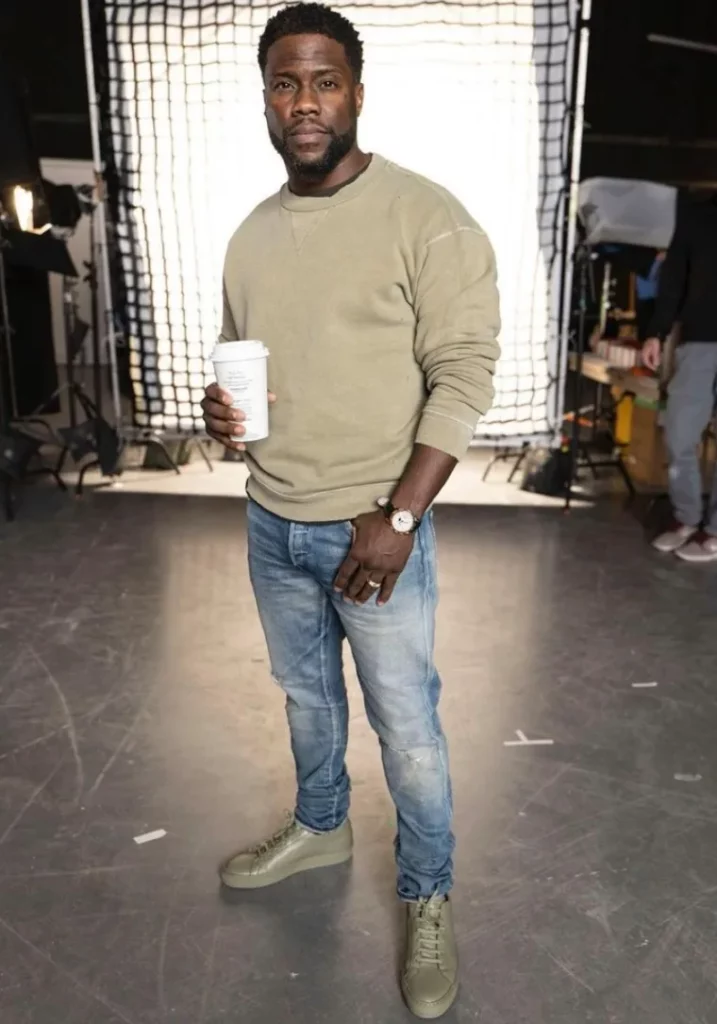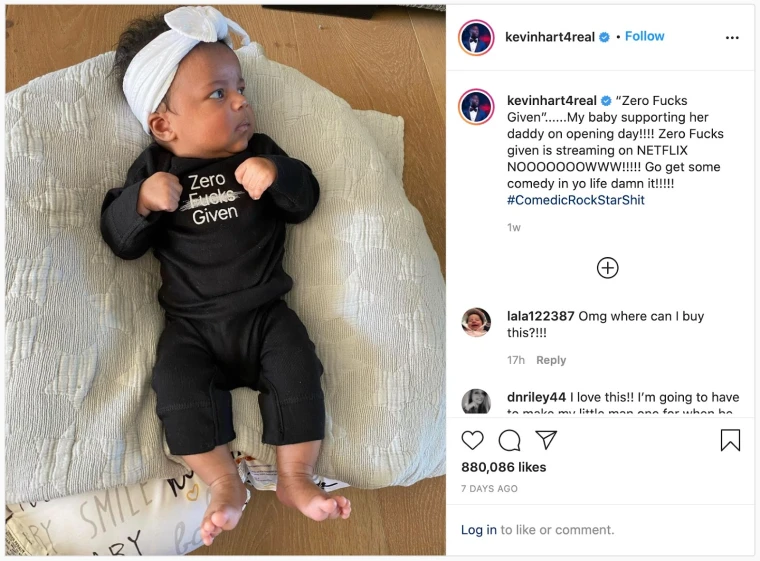Actor Kevin Hart found himself in the midst of controversy when he shared a photo of his daughter, Kaori Mai, on Instagram. The picture showcased little Kaori dressed in a black two-piece outfit, with sweatpants and a bottom, while lying on a comfy blanket indoors. However, what caught the attention and criticism of many fans was the message written on her outfit – “Zero [expletive] Given.”
While some fans were charmed by the adorable snapshot of baby Kaori supporting her daddy on opening day, a significant number of people were not amused by the choice of clothing. They questioned whether it was appropriate for a child to wear clothes with such explicit language. Some expressed their disappointment, emphasizing that Kaori was just a baby and shouldn’t be dressed in attire featuring expletives. Others felt that it was excessive and argued that babies should be dressed in innocent and wholesome clothes.

Kevin Hart’s new Netflix special, which shared the same controversial title as the message on Kaori’s outfit, further fueled the criticism. The association between the special’s title and the baby’s clothing choice seemed to amplify the negative reactions.
Kaori, born in September 2020, is the daughter of Kevin Hart and his wife, Eniko Hart. She has an older brother named Kenzo, who is two years old, and Kevin’s children from his previous marriage are named Hendrix and Heaven.

The post of baby Kaori wearing the “controversial” shirt sparked a divided response among Kevin Hart’s fans. Some defended his right to dress his daughter as he pleases, while others believed that certain language should not be featured on baby clothing due to their innocence.
In conclusion, Kevin Hart faced criticism and mixed reactions from fans when he shared a photo of his daughter, Kaori, wearing a shirt with a controversial message. The incident raised discussions about appropriate attire for young children and the use of explicit language in clothing aimed at babies. As with many social media controversies, opinions were divided, but it sparked a broader conversation about parenting choices and societal norms.


